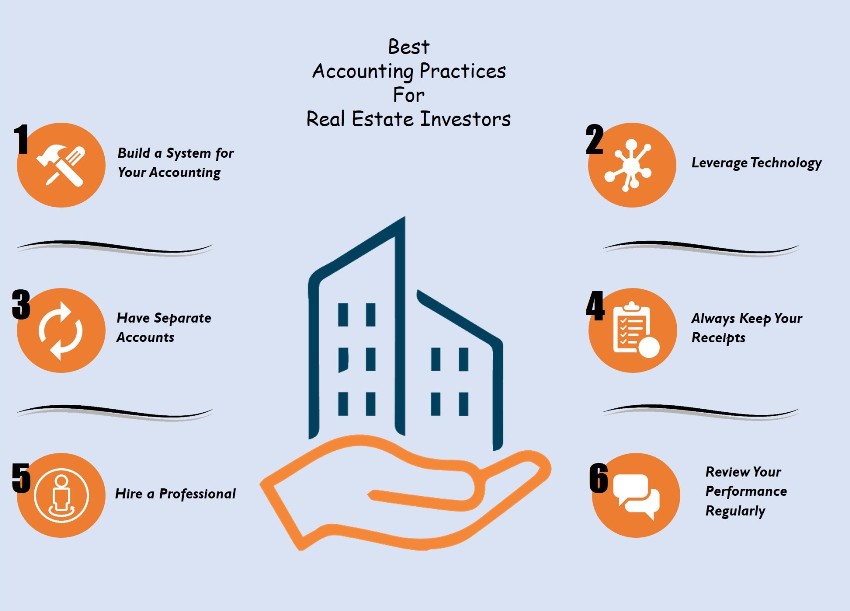The Advantages of Hiring Real Estate Tax Services for Property Owners
The Key Advantages of Executing Construction Audit Practices in Construction & Property Firms
The execution of building accountancy techniques within building and genuine estate firms provides various benefits that can substantially boost overall monetary management and job results. By developing rigorous budgeting and cost-tracking mechanisms, companies can attain higher precision in economic preparation and capital monitoring. These practices not only alleviate errors yet also assist in educated decision-making with prompt accessibility to crucial data. As the sector continues to evolve, understanding the complete extent of these advantages comes to be crucial for maintaining competitiveness and attaining sustainable development. What details locations of monetary management might generate the most substantial renovations?
Boosted Spending Plan Control
In the world of construction accountancy, effective budget control is vital for task success. Improved budget control includes rigorous surveillance and monitoring of funds throughout the task lifecycle. Precise budgeting makes certain that expenses are estimated realistically, making it possible for firms to allocate funds efficiently and alleviate the danger of overruns.
To attain enhanced budget control, building companies should employ in-depth expense monitoring techniques, using innovative software application solutions that help with real-time information evaluation. This includes damaging down job prices into labor, materials, and overhead, permitting precise forecasting and adjustments as required. Routine budget plan evaluations and difference analysis are vital in determining inconsistencies in between projected and actual expenditures, which can inform timely decision-making.
Moreover, clear interaction amongst job stakeholders is essential for preserving monetary discipline. Establishing a culture of liability guarantees that all staff member know financial constraints and objectives. By fostering collaboration throughout departments, firms can enhance their capacity to react to monetary obstacles proactively.

Improved Cash Circulation Management

Efficient capital management is essential for construction companies, as it straight impacts their ability to run efficiently and fulfill job responsibilities. By utilizing robust building audit methods, firms can get a clearer image of their financial position, allowing for much better projecting and source allocation.
Among the primary advantages of improved cash flow management is the capacity to prepare for durations of monetary pressure. Building jobs typically entail substantial ahead of time prices and varying revenue based on project landmarks. With effective tracking of income and costs, companies can identify possible cash money shortages and implement techniques to alleviate them, such as protecting lines of credit scores or adjusting payment routines with subcontractors.
By improving these procedures, building and construction firms can ensure that funds are available when required, supporting ongoing procedures and decreasing the danger of delays due to cash restraints. Exact cash circulation estimates allow companies to make educated decisions relating to financial investments in brand-new jobs, tools, or personnel, cultivating sustainable development and security within the organization.
Boosted Project Earnings
Making best use of job productivity is a basic goal for construction firms making every effort to enhance their monetary efficiency. Executing effective construction bookkeeping techniques is critical in attaining this goal. By accurately tracking job expenses, firms can identify locations of overspending and carry out corrective measures promptly. This proactive approach enables for better budget plan management, making sure that sources are assigned effectively throughout the task lifecycle.
Furthermore, in-depth economic coverage and evaluation provide insights right into earnings margins for different jobs. By reviewing these margins, companies can make educated choices on future quotes, guaranteeing they seek jobs that line up with their earnings objectives. Furthermore, building and construction audit practices assist in better communication among job stakeholders, promoting partnership that can cause cost-saving developments and boosted task execution.
Additionally, establishing a durable audit structure makes it possible for companies to accurately assess their efficiency versus industry standards. This not just aids in identifying staminas however also highlights weaknesses that require attending to, allowing constant improvement. Eventually, enhanced project productivity not just strengthens a company's monetary standing but likewise enhances its competitive advantage in the building and construction and realty market, paving the way for lasting growth and success.
Streamlined Financial Processes
Streamlined economic procedures are necessary for building and construction companies aiming to boost functional effectiveness and precision in their bookkeeping methods. By using and applying standardized procedures specialized software program, firms can substantially lower the moment and initiative invested on economic management tasks. Automation of routine jobs, such as pay-roll, invoicing, and cost monitoring, lessens human mistake and ensures that economic information Check This Out is refined promptly.
Additionally, streamlined processes facilitate much better money circulation administration, an essential element for building and construction firms where project timelines and budget plans can be uncertain. With real-time monetary reporting, business can check their monetary wellness, enabling for swift adjustments to reduce any type of cash circulation problems. This positive technique aids maintain distributor relationships and maintains jobs on time.
Incorporating building accounting techniques enables firms to settle various financial features, from budgeting to project setting you back, right into natural process. This combination not only conserves time yet additionally promotes openness and accountability amongst staff member. Inevitably, structured economic processes add to a more nimble organization, prepared to react to market modifications and project demands while making sure that financial integrity remains intact.

Educated Decision-Making Insights
Enlightened decision-making is essential for building companies navigating complex job landscapes and rising and fall market problems. By executing robust building and construction bookkeeping practices, companies can utilize exact economic information to facilitate tactical options. This data-driven technique enables supervisors to evaluate project viability, designate sources successfully, and forecast money circulation changes with higher accuracy.
Construction audit provides understandings into expense monitoring, permitting companies to recognize locations of overspending and execute restorative procedures immediately. For example, detailed budget tracking and difference analysis can expose inconsistencies More hints in between predicted and real prices, notifying future project bids and methods. Additionally, prompt financial coverage boosts the capability to respond to market changes, making sure that companies remain affordable and active
In addition, accurate financial understandings foster much better communication with stakeholders, including customers and investors. Transparent monetary reporting develops depend on and self-confidence, as stakeholders can see the firm's economic wellness and project efficiency at a glimpse. Eventually, notified decision-making, backed by sound accounting methods, furnishes building firms to navigate difficulties, maximize possibilities, and drive lasting development in a progressively affordable industry.
Conclusion
To conclude, the implementation of building bookkeeping techniques in building and property companies dramatically improves economic administration. By helping with improved budget control, enhancing cash money flow management, and enhancing task profitability, these techniques contribute to streamlined economic procedures and informed decision-making. The adoption of such techniques not just fosters responsibility amongst stakeholders but additionally outfits firms with the dexterity needed to navigate changing market conditions, inevitably leading to greater general success in job execution.
The execution of construction bookkeeping techniques within construction and actual estate companies presents numerous advantages that can considerably enhance overall financial management and task end results. Building and construction jobs frequently involve considerable upfront costs and fluctuating earnings based on project turning points. Furthermore, construction bookkeeping practices facilitate better communication amongst job stakeholders, promoting collaboration that can lead to cost-saving innovations and boosted task execution.
Incorporating building and construction accountancy methods allows firms to settle various economic functions, from budgeting to project costing, into cohesive process. Real Estate Accountants. In-depth spending plan monitoring and difference evaluation can reveal inconsistencies between projected and real special info prices, educating future job proposals and techniques